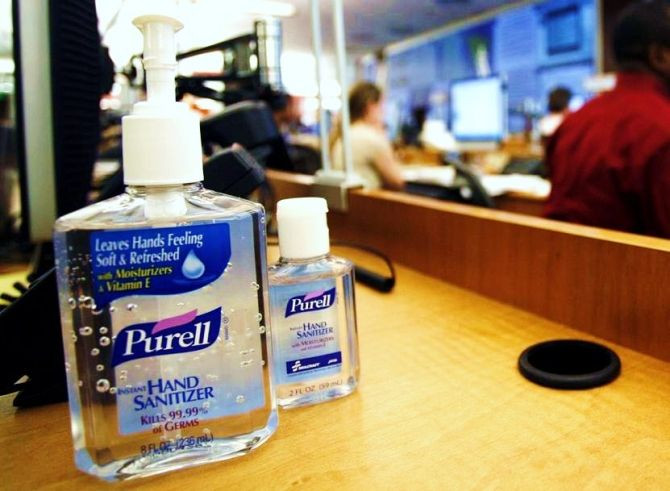Experts Warn about New Adolescent Trend of Getting Drunk off Hand Sanitizers

Doctors are warning parents about a dangerous new trend of teens getting drunk off liquid hand sanitizers, after six teenagers in California were recently rushed to emergency rooms with alcohol poisoning from drinking hand sanitizer.
Liquid sanitizers are cheap, accessible to underage teens and contain 62 percent ethyl alcohol and become 120-proof after distillation. Instead of drinking the sanitizers outright, teens are reportedly using an extraction technique found on the internet, which uses salt to purify and enhance the potency of the alcohol.
Dr. Bill Mallon, who works in the emergency room at Los Angeles County USC Medical Center, told KTLA that he had seen many young people at the hospital with alcohol poisoning after drinking disinfectants.
“It doesn't sound appealing, but you have to remember that kids don't have access to alcohol so they're very creative," Mallon told KTLA.
"It's essentially a shot of hard liquor," Cyrus Rangan, director of the toxicology bureau for the Los Angeles County Public Health Department told KTLA. "All it takes is just a few swallows and you have a drunk teenager."
While there have only been a few reported cases of teens ending up in emergency rooms after drinking sanitizer, Rangan believes that it could signal an up and coming dangerous trend.
Experts say that hand sanitizer, like mouthwash, cough syrup and even vanilla extract, is just the latest over-the-counter product adolescents have used for a quick high.
"Over the years, they have ingested all sorts of things," Helen Arbogast, injury prevention coordinator in the trauma program at Children's Hospital Los Angeles, said, according to the Los Angeles Times. "Cough syrup had reached a very sexy point where young people were using it.... We want to be sure this doesn't take on the same trend."
Parents should monitor hand sanitizer like they would alcohol or medication and make sure to keep disinfectants out a reach when not in use, Rangan said in a statement.
Additionally, experts at the Children’s Hospital Los Angeles recommend parents to buy foam-based sanitizers, which are harder to extract alcohol, to protect teens from alcohol poisoning and children who might accidentally swallow it.
Published by Medicaldaily.com



























